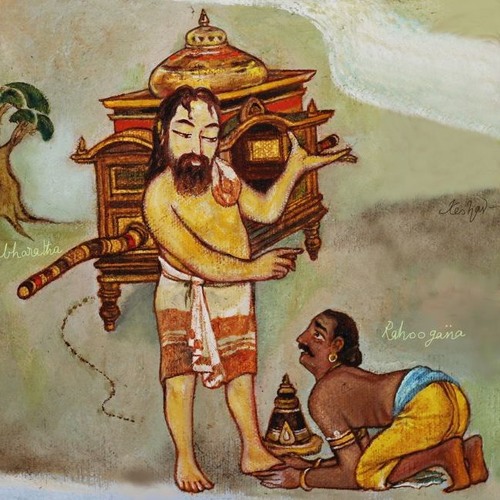Question: My question is why does the Bhagavatam (Canto 5) criticize family life in the conversation between Jada Bharata and King Rahugana? Vaishnava devotees are naturally unattached to their wife, parents, and children. How is a practicing devotee to take this instruction?
If family life is compared to a ditch for passing stool, it should be mentioned in context with non-devotees. Isn’t there a lack of clarity in the verses since it is nowhere mentioned that it pertains only to the materialists?
Are not practicing Vaishnavas misguided by the equivocal direction? Should they give up everything and neglect their worldly duties? Such statements are like poison because, without detachment to material life, one cannot be a Vaishnava. It implies that the words of the Bhagavatam do not have faith in the householder devotee’s conduct. I beg your grace to please dispel my doubts. All glories to the Vaishnavas! Thank you.
Answer by Romapada Swami:
From Srimad Bhagavatam (Canto 1, Chapter 1), we know that one of the six questions asked by the sages of Naimisaranya to Suta Goswami is “Since Śrī Kṛṣṇa, the Absolute Truth, the master of all mystic powers, has departed for His own abode, please tell us to whom the religious principles have now gone for shelter.”
Suta Goswami answers this question in SB 1.3.43
“This Bhāgavata Purāṇa is as brilliant as the sun, and it has arisen just after the departure of Lord Kṛṣṇa to His own abode, accompanied by religion, knowledge, etc. Persons who have lost their vision due to the dense darkness of ignorance in the Age of Kali shall get light from this Purāṇa.”
One should also understand the position of Srimad Bhagavatam – SB 1.3.40
“This Śrīmad-Bhāgavatam is the literary incarnation of God, and it is compiled by Śrīla Vyāsadeva, the incarnation of God. It is meant for the ultimate good of all people, and it is all-successful, all-blissful, and all-perfect.”
Srimad Bhagavatam is spotless purana. There can never be any fault or incompleteness found in Srimad Bhagavatam. One should read it with great care, attention, and great respect. It is also very important to read the Bhaktivendanta purports to understand the message of its verses.
Regarding your question, in general, practicing devotees or sadhakas are not yet pure devotees. They are following the process of pure bhakti but their mind is not yet fully purified. That is to say, they are still conditioned souls who are prone to fall prey to the powerful material energy. Srimad Bhagavatam, therefore, helps us by providing several warnings to watch out, for not falling down by coming under the strong influence of the three modes of material nature.
In Bhagavad Gita, Krsna never advised or supported Arjuna’s disposition to give up fighting and leave the battlefield to go to the forest.
Rather Krsna instructed Arjuna to do his duties as a ksatriya and fight for His pleasure. Similarly, we are not being advised to abruptly give up our duties in order to practice detachment. That is called dry renunciation (phalagu vairagya), in which complete purification of the heart has not taken place.
Rather we are instructed by Krsna to increase our attachment towards Him and by so doing, naturally, our attraction for worldly enjoyment for sense gratification will proportionately subside.
One should still continue doing one’s duty but the perception of how one takes care of one’s duties changes. As one develops devotion and service attitude for Lord Sri Krsna, one will see one’s duties as part of one’s service to the Lord, given by the Lord Himself to us. This is defined as yukta vairagya by Srila Rupa Goswami.
anāsaktasya viṣayān
yathārham upayuñjataḥ
nirbandhe kṛṣṇa-sambandhe
yukta-vairāgyam ucyate
As long as we are in this material world we have to act; we cannot cease acting. Therefore, if actions are performed and the fruits are given to Kṛṣṇa, then that is called yukta-vairāgya. Actually, situated in renunciation, such activities clear the mirror of the mind, and as the actor gradually makes progress in spiritual realization he becomes completely surrendered to the Supreme Personality of Godhead.







